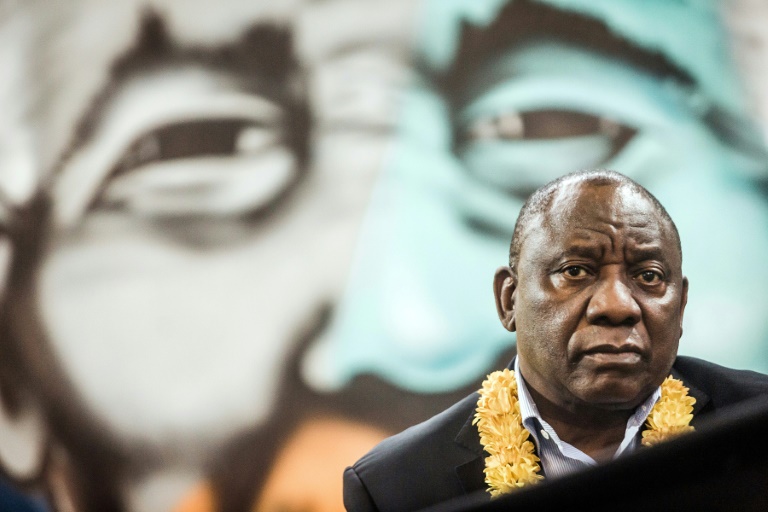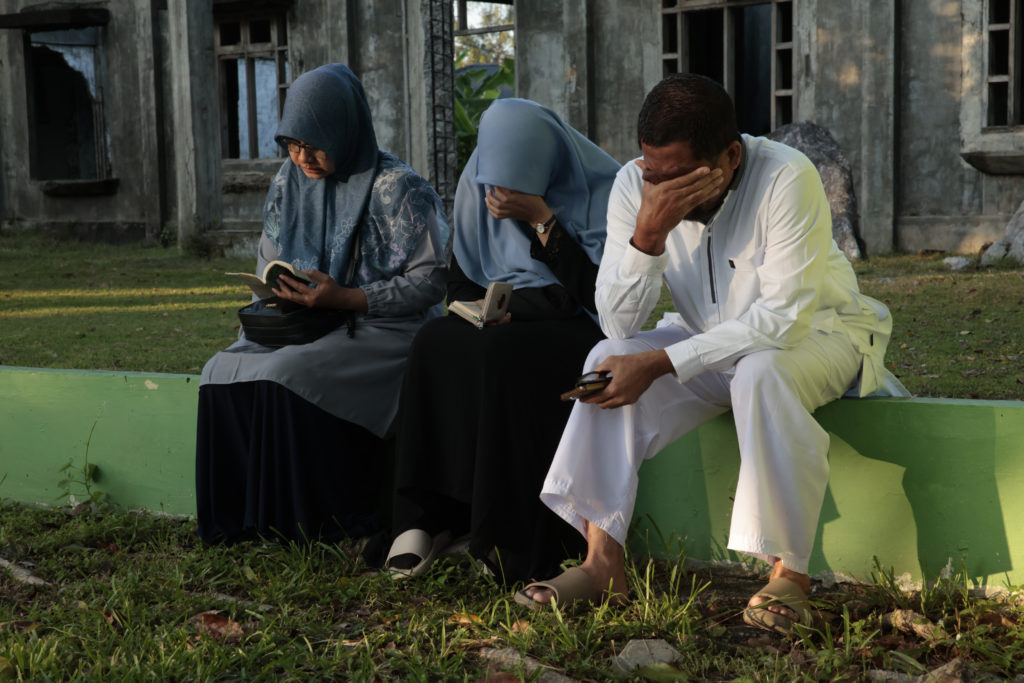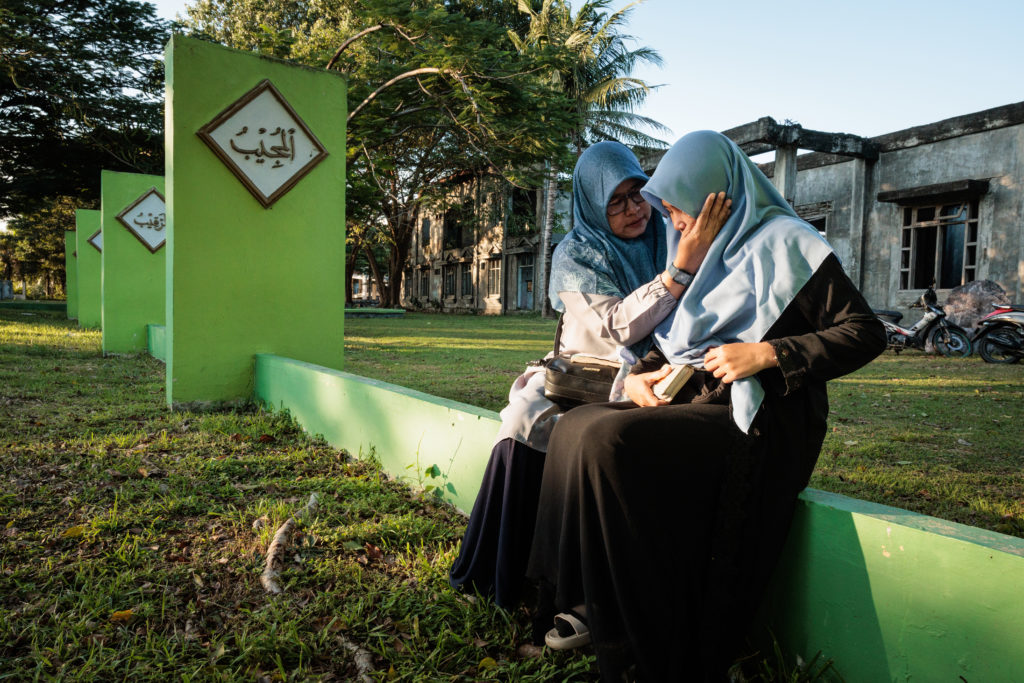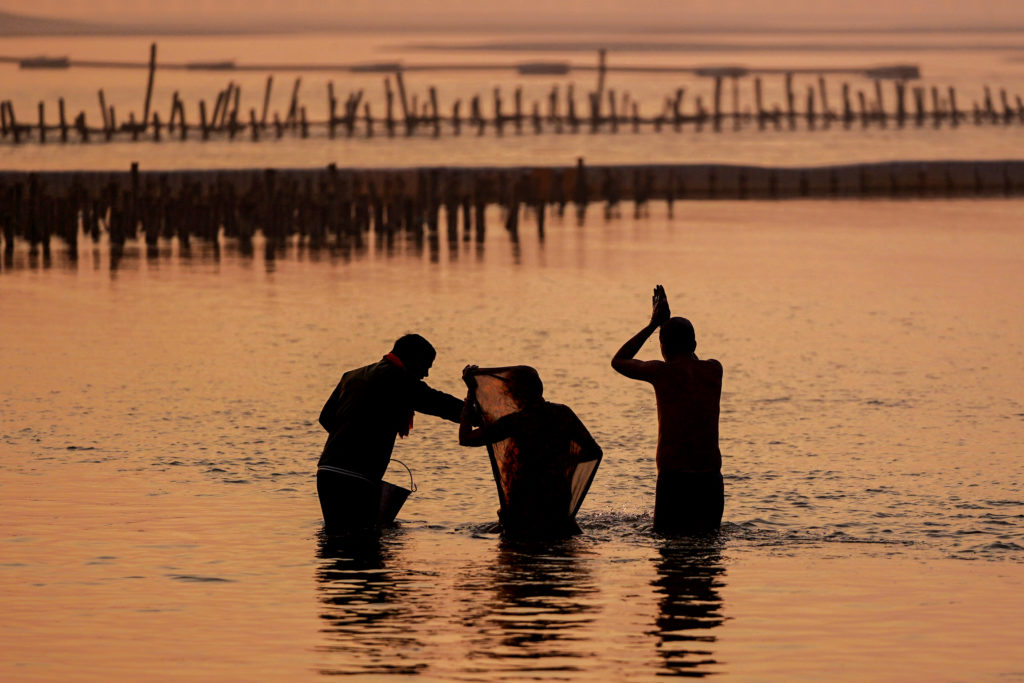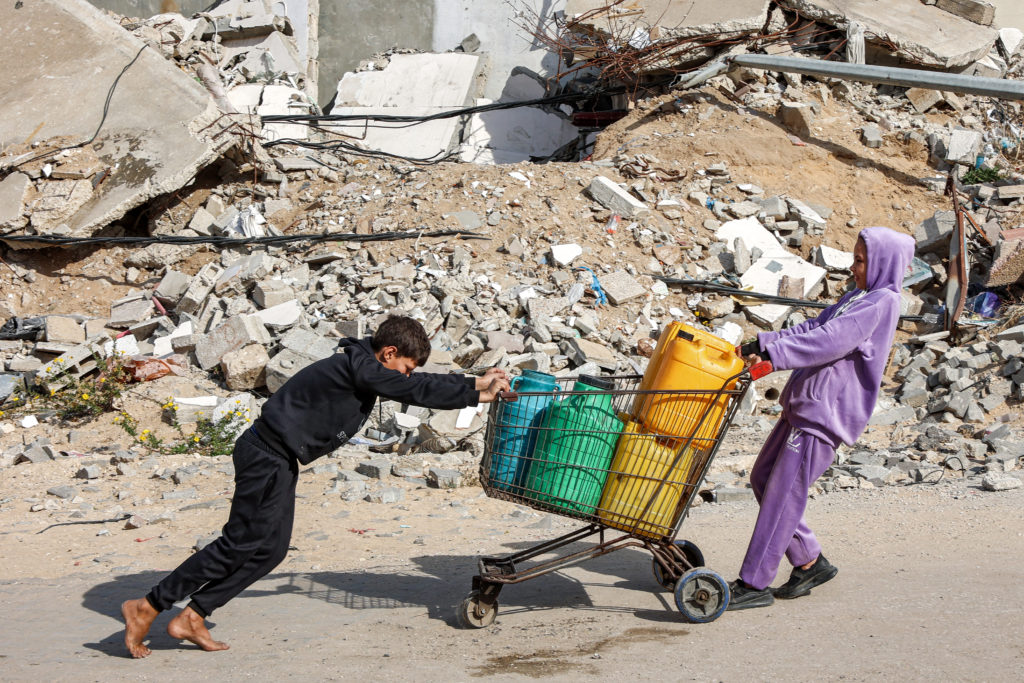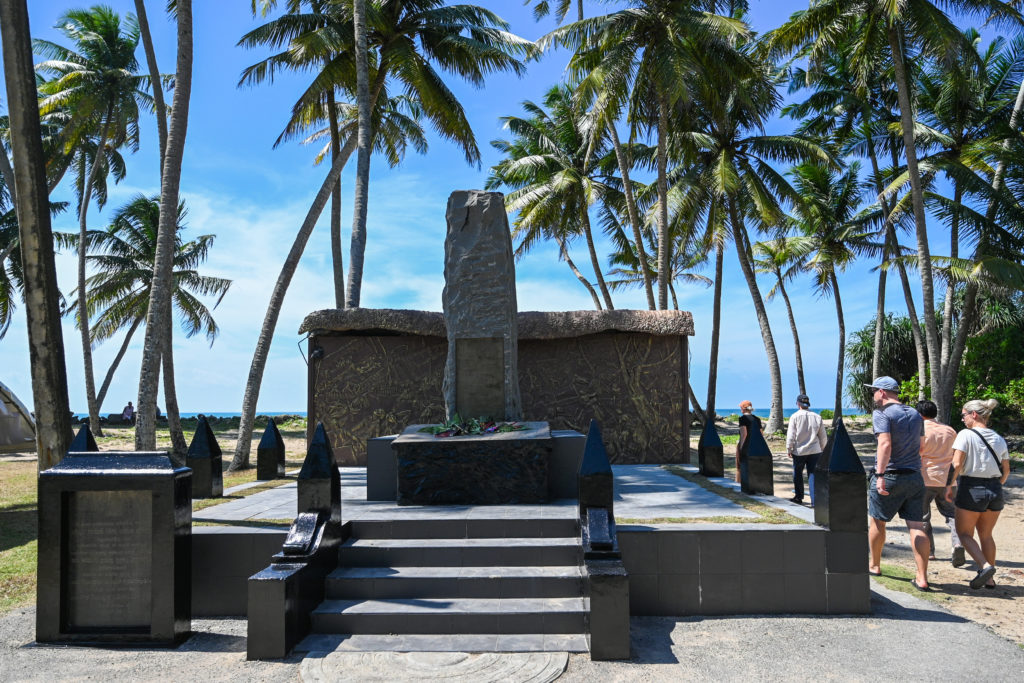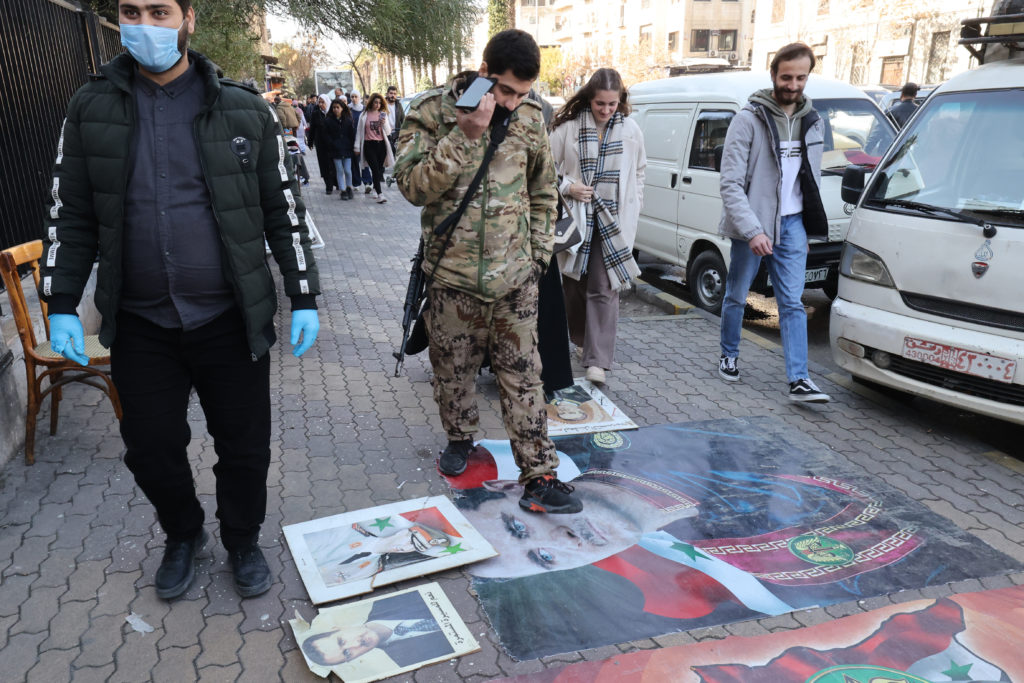Ramaphosa, speaking in front of a portrait of Nelson Mandela at an ANC election campaign event in 2018
Pragmatic, wealthy and ambitious, Cyril Ramaphosa promised “a new dawn” for corruption-ridden South Africa when he became president.
Today, nearly five years later, his reputation has been overwhelmed by a deeply damaging scandal.
Just as he looked set to secure re-election at the helm of the ruling ANC party — a stepping stone to a second term as president of the nation -– a special inquiry determined Ramaphosa had probably broken the law over the alleged cover-up of a burglary.
Details about a huge cash haul stolen from his farmhouse have dealt a massive reputational blow to Ramphosa, who took the reins of Africa’s most industrialised economy on a pledge to root out graft.
The African National Congress (ANC), the vanguard of the anti-apartheid struggle once led by Nelson Mandela, must now decide whether Ramaphosa should stay or be pushed out like his graft-tained predecessor, Jacob Zuma.
Born on November 17, 1952 in Johannesburg’s Soweto township — the cradle of the anti-apartheid struggle — Ramaphosa had long angled for South Africa’s top job, but only came to it after a long detour.
He took up activism while studying law in the 1970s, and spent 11 months in solitary confinement in 1974.
After studying, he turned to trade unionism, one of the few legal ways of protesting against the white-minority regime.
In 1982, he founded the National Union of Mineworkers (NUM), which swelled to 300,000 members and led massive strikes in 1987 that shook the foundations of white rule.
– From Mandela to Coca-Cola –
A protege of Mandela, who once described him as one of the most gifted leaders of the “new generation,” Ramaphosa stood alongside the anti-apartheid icon when he walked out of jail in 1990.
He was a key member of the taskforce that steered the transition to democracy.
But after missing out on becoming Mandela’s successor, Ramaphosa swapped politics for a foray into business that made him one of the wealthiest people in Africa.
He held stakes in McDonald’s and Coca-Cola, making millions in deals that required investors to partner with non-white shareholders.
Ramaphosa also developed a passion for breeding rare buffalos and cattle — a business that would come back to haunt him.
The opposition once nicknamed him “The Buffalo” after he bid for an 18-million-rand ($104,000) beast in 2012.
He later apologised for making the glitzy bid “in a sea of poverty.”
In 2012, his image was badly tarnished when police killed 34 striking workers at the Marikana platinum mine, where he was then a non-executive director. He had called for a crackdown on the strikers, whom he accused of “dastardly criminal” behaviour.
– Covid –
He returned to politics to become Jacob Zuma’s vice president in 2014, often drawing criticism for failing to speak out against government corruption.
Renowned for his patience and strategic thinking, Ramaphosa narrowly defeated pro-Zuma rivals to take over leadership of the ANC party in 2017 and then the presidency when Zuma was forced out two months later.
Relaxed at public appearances, he attracts a support base crossing South Africa’s racial and class divides, but still faces strong opposition from inside the ANC, mainly from Zuma supporters.
His anti-corruption drive has yielded some results, with charges being brought against some high-profile figures.
His handling of the Covid health crisis also won praise internationally.
But the pandemic dealt a heavy blow to plans to revive South Africa’s sagging economy, unemployment remains stratospherically high and prolonged power cuts are a deep source of anger.
– Cash under cushions –
Yet it is the accusations that Ramaphosa attempted to conceal a $580,000 heist at his Phala Phala farmhouse that have most damaged him.
The cash was payment for buffalos bought by a Sudanese citizen, Ramaphosa told investigators.
The money was stored beneath sofa cushions in his residence at the ranch, a place staff believed to be the “safest,” he said.
He denied allegations, first made by South Africa’s ex-spy boss, a Zuma ally, that he had arranged for the robbers to be kidnapped and bribed into silence.
But the inquiry panel expressed doubt about the legitimacy of the source of the money.
It also concluded that Ramaphosa may have committed serious violations and misconduct in being involved at his farm while president, in not reporting the theft directly to police and in seeking the help of his Namibian counterpart to apprehend the thieves.
Its report was submitted to parliament on Wednesday, potentially opening the way for a vote to remove Ramaphosa.

